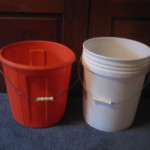Not counting donations, during this fourth week I spent $7. It was invisible money because my husband paid for something that included both of us and I didn’t notice – till later. That’s what happened when we went to a local contra dance last Saturday. He paid my admission of $7 and only later did I wonder if I should have stayed home. Well, I actually would not have stayed home, but I could have offered to help with clean-up which would earn me one free admission. The next week, I did do clean up. Now there are two more Monday dance nights till Easter. This has prompted me to reflect again on what I’m learning from this experience and whether it’s really bringing me more solidarity with the poor or is just a game.
5 INSIGHTS ABOUT SPENDING, NOT SPENDING, AND DONATING:
1. How do people on a limited income recreate?
Our weekly Monday contra dance only costs $4. Many years ago I used to do clean-up – partly for the free admission and partly to be a responsible dance community member. Weekend dances cost a lot more even after taking advantage of lodging in other dancer’s homes. Recreation and exercise are good for the body and spirit. Certainly there are free kinds of recreation like walking, running, biking (assuming you have a bike), swimming in a public body of water, basketball and tennis (if you have a public court near you), BUT most sports require some kind of payment for equipment or time. Should recreation only be for those who can afford it?
2. Waiting to buy something can be costly.
This week I became aware of several spring and Easter sales. One was at my favorite clothing store. Another was at the DSW where I plan to buy my next pair of all purpose shoes when Lent is over. (See last week’s post.) BUT, both sales end before Easter which means the price will be more. I’ll just  suck it up this time, but if I were really poor, I’d be tempted to put it on a credit card (if I had one) and pay for it later even if it meant debt. On a more serious level, delayed health care can mean more costly care later. I’m also afraid that my favorite Papas chocolate eggs will be all gone by Easter. Can I justify buying them under the “food” category?
suck it up this time, but if I were really poor, I’d be tempted to put it on a credit card (if I had one) and pay for it later even if it meant debt. On a more serious level, delayed health care can mean more costly care later. I’m also afraid that my favorite Papas chocolate eggs will be all gone by Easter. Can I justify buying them under the “food” category?
3. Some payments are invisible.
The cable TV statement came. It’s $17/month for basic service, BUT, we have it on auto pay so I didn’t really feel like I was paying out money. If I were poor, would I have cable? Probably. We can’t get even the local stations reliably on our basement TV so we need cable. If I were poor would I have a second TV? Or, would I watch anything I really wanted on the computer like I currently do? Should I assume I would have a home computer with internet service?
Then I was about to renew a magazine subscription to US Catholic. As I was about to write the check I realized that this was a payment. It didn’t feel like it since it wasn’t cash. I decided to wait till Easter since magazine subscriptions usually come way early. I could possible justify this as a work or educational expense but, hey, you can get most of this info online these days anyway – if you have a computer and internet!
4. Is this just a game?
I admit that I have found myself trying to justify expenditures for medical, work, education, etc. that didn’t fit my barebones criteria of food, shelter, and transportation. Likewise, if Jim paid for it, did it count? If I was out of town, I had no choice but to eat in restaurants. It would be unfair or rude not to pay my bills that had been incurred earlier. Preventive house maintenance is better than fixing something after it breaks. Often I’m just delaying payments not choosing to do without. It can be a challenge, but it can also just be an amusing experiment. The whole reason behind it, however, is not just to have fun and feed my compulsive side, but to raise my consciousness and to enter into deeper solidarity with those who don’t have a choice.
5. Donating is habit forming.
I passed my “donating corner” twice this week and thus gave $20 to sign holders. I was planning on a third donation but Jim took a different route to our parish. I was ready and surprised that I felt a little disappointed to miss the opportunity.





























